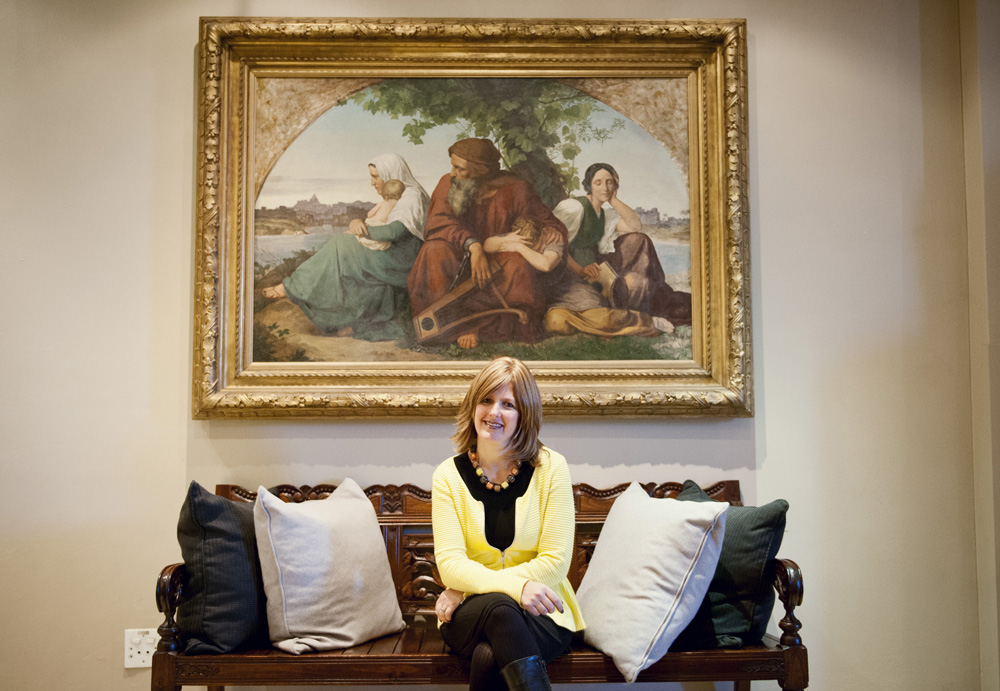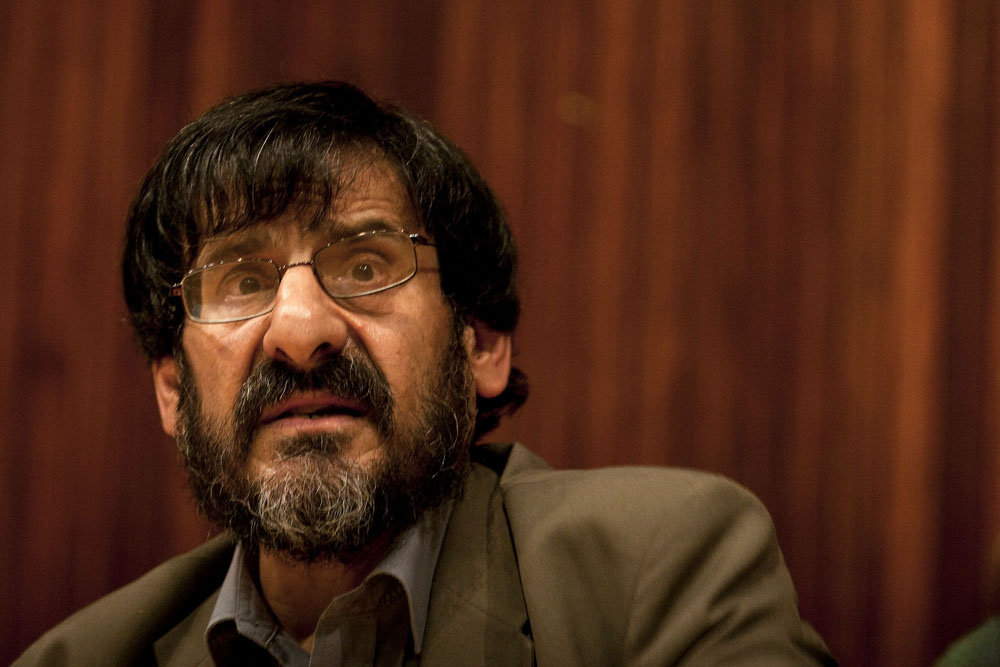The stringent security measures at a pro-Israel rally in Johannesburg on Sunday appears to reflect what some have termed a paranoia experienced by South Africa’s Jewish community. But where does this alleged paranoia originate from?
Israel began its air and naval offensive against Gaza on July 8 following what it said was a surge of cross-border rocket salvos by Hamas and other guerrillas. Israel later also launched ground incursions.
Read more on the Gaza conflict:
Wendy Khan, the national director of the South African Jewish Board of Deputies, which supported the pro-Israel rally, said the heightened security was “in line with the global threats against Jewish people, which have resulted in physical assaults against Jewish people in Belgium, France, the UK [United Kingdom] and Australia”.
Their fears about safety were confirmed when police reported that they had arrested a Palestinian national near the rally carrying three firearms, one of which was unlicensed, and three knives.
‘High-risk country’
Avrom Krengel, the chairperson of the South African Zionist Federation, which organised the event, agreed with Khan’s sentiments and added that Jewish institutions in South Africa have always maintained a certain level of security. “It’s not a secret that it’s a relatively high-risk country,” he said.
When there was conflict in the Middle East the risk increased here, as it did everywhere else in the world, Krengel said.
“This time it was very noticeable. The level of threats, intimidation and the hate speech on social media was very high. Having said that, there have been no physical attacks.”
At the King David schools in Johannesburg, security guards man the gates and parents can be seen patrolling outside at drop-off and pick-up times.

Wendy Khan says security was beefed up for the pro-Israel rally in Johannesburg because of global threats to Jews. (Madelene Cronjé, M&G)
But Rabbi Craig Kacev, the general director of the South African Board of Jewish Education, said that this level of security is normal.
“Parents do voluntary duty … and can spot someone who should and shouldn’t be in the environment,” he said.
“We haven’t had any incidents during the time period of conflict in Israel. We have just remained vigilant and are keeping security at top level.”
Increased threat
Rabbi Shmuel Kagen of the Glenhazel shul said that the threat to Jewish people and institutions has increased and that the shul has taken precautions.
“There’s more focus, greater awareness and a greater encouragement from Jewish members of the community to join CSO [the Community Security Organisation] and to make sure that they do their shifts for security.”
As at the schools, volunteers patrol the shul, especially during services.
The CSO is mandated by the Jewish community to watch over communal organisations and events. A spokesperson for the CSO, who didn’t want to be named, said that all threats are taken seriously by the organisation.
“We do monitor through the board of deputies, obviously, what goes on. If necessary, where required, we do increase the level of security,” he said. “We have to take them [the threats] seriously, because we have learned from the past [that] when people start saying things, it’s followed by action. You only need one crazy person and then disaster.”
But Khan and Krengel said that anti-Semitism is relatively low in South Africa. Khan added that 72 anti-Semitic incidents, none of them physical, had been reported in South Africa in July this year, compared with 52 incidents in 2013.
Paranoia
But Steven Friedman, an academic and political commentator, laughed off the Jews as paranoid, which he said is “absolutely central to the community”.
“The way in which the Israeli government ensures support around the world is to create an atmosphere of fear,” Friedman said. “Jews over the centuries were persecuted in many countries. It’s become part of the Jewish memory.
“Essentially, what they have managed to do is create a mind-set where the only possible explanation of anything that happens in the Middle East … is that people must be trying to persecute Jews.”

Steven Friedman says the paranoia is part of a historical mind-set. (Oupa Nkosi, M&G)
According to Friedman, even the slightest retaliation from Palestine on an Israeli attack will be framed as Jewish people being under attack.
“There weren’t any rockets being fired before Israel invaded Gaza. How many people in Israeli cities have actually been under threat? Zero,” he said.
“If you read mainstream Jewish media, their understanding of what is going on there is that people who hate the Jews are now attacking them. The Israeli government blows sirens and forces people into bomb shelters, so that they have a real sense of terror and feeling besieged.”
Insular community
Friedman said that mainstream South African Zionists are right wing and a very insular community, which could be attributed to the fact that much of the community grew up during apartheid.
“A person supporting the Israeli state in Britain or Western Europe would have at least been exposed to democratic ideas and people talking about rights. Here they haven’t been,” he said.
Krengel confirmed that the approximately 80 000 Jews living in South Africa tend to be in cohesive, united communities, with very low assimilation rates. They are very pro-Israel, he said.
Professor Milton Shain, of the Kaplan Centre for Jewish Studies and Research at the University of Cape Town, explained the historical background of what he calls South Africa’s “staunchly Zionist community”.
“It has its origins in Lithuania,” Shain said. “A Jewish community that very early on was very Zionist brought that in their cultural baggage and consolidated it here, because it was a comfortable environment [in which] to express one’s Zionism.
“There was space for Jews in South Africa’s divided society and ethnic mosaic.”
Mexican counterpart
But Friedman said that the only other Jewish community similar to South Africa’s is in Mexico. Historically, this is because in both countries Jews were accepted as citizens but were not welcomed into the ruling group.
“Mexico Jews were welcome to settle but it was a very Catholic country. Here, under apartheid, the National Party decided very soon after 1948, they were going to let Jews [in]. [But] Jews were only allowed to join the National Party in late 1970s,” Friedman said.
“Because both communities had these rights but were not welcomed into the mainstream, they were not assimilated at all … Therefore they tend to be quite insular, very proud of the fact that rates of intermarriage between Jews and non-Jews is much lower than [in] other countries [and they are] happy to identify as Jews in public.
“This leads to strong nationalist sentiment, which translates into right-wing sentiment.”
Media given the third degree at rally
I got to the entrance of Sunday’s Israel support rally in Johannesburg to find one of the Mail & Guardian photographers, an Indian man, being hassled by security officials. Despite having his press card with him, the security officials would not grant him entry because they said it expired in August (although it did not specify a specific date in August).
Eventually, a volunteer from the South African Zionist Federation came to our rescue and phoned the M&G‘s editor to establish that we did indeed work for the publication.
After this the security officials took photos of our identification cards and our faces, before reluctantly letting us into the venue.
After the event it emerged that a number of other journalists had experienced similar treatment in varying degrees.
Journalists for the Times and the Daily Maverick were questioned about what they planned to report on and what their views were on the conflict in Gaza before being allowed in.
Qaanitah Hunter, a journalist from the New Age who wears a head scarf, experienced “severe problems”.
She waited for almost an hour at a metro police van before security officials took photos of her and her press card and then let her in, but was under constant supervision. Once inside she had to endure insults from people attending the event.